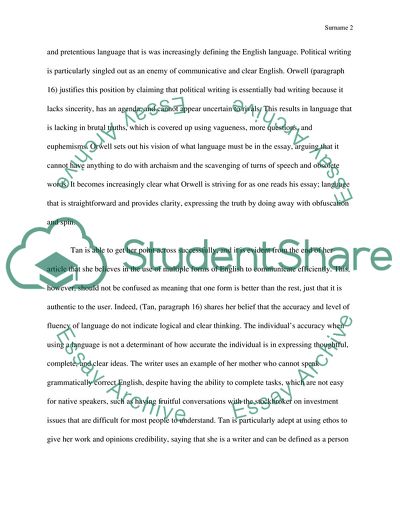Cite this document
(Language and Identity: George Orwell and Amy Tan Coursework Example | Topics and Well Written Essays - 1250 words, n.d.)
Language and Identity: George Orwell and Amy Tan Coursework Example | Topics and Well Written Essays - 1250 words. https://studentshare.org/humanitarian/1838051-make-your-own-topic
Language and Identity: George Orwell and Amy Tan Coursework Example | Topics and Well Written Essays - 1250 words. https://studentshare.org/humanitarian/1838051-make-your-own-topic
(Language and Identity: George Orwell and Amy Tan Coursework Example | Topics and Well Written Essays - 1250 Words)
Language and Identity: George Orwell and Amy Tan Coursework Example | Topics and Well Written Essays - 1250 Words. https://studentshare.org/humanitarian/1838051-make-your-own-topic.
Language and Identity: George Orwell and Amy Tan Coursework Example | Topics and Well Written Essays - 1250 Words. https://studentshare.org/humanitarian/1838051-make-your-own-topic.
“Language and Identity: George Orwell and Amy Tan Coursework Example | Topics and Well Written Essays - 1250 Words”. https://studentshare.org/humanitarian/1838051-make-your-own-topic.


